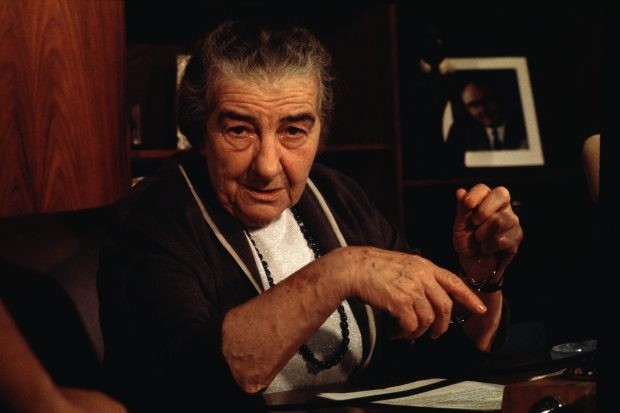My Life: The Iron Lady of Israel, Golda Meir - XIV
15 Jan 2024 18:06:25
Immigration
Between 14th May 1948 and 1951, Israel was flooded by immigrants, they had no money, food or shelter. Only had a strong will to live and wanted to distance themselves from their terrible past, Golda described them as ' broken in body and spirit '. Europe suffered unbelievably, in North Africa they were uneducated, poor, lived in ghettos, knew nothing of modern life, spoke different languages, had contrasted backgrounds, and different food habits, but they remained Jews. Approximately 332000 immigrants arrived from many countries to Israel as the establishment of a Jewish state gave them hope.
There were some survivors of the holocaust too. Many were ' deprived of the political rights, persecuted, impoverished, had many restrictions ', but had their synagogues, schools, male children were taught Hebrew too. All acquired some skills to keep afloat. Specially in Yemen, the situation was difficult. They could hardly take anything, but determined to reach the Holy Land, it was like, Golda described ' to walk out of slavery into freedom '. After the Suez Canal was closed, they were airlifted, it continued for a year, and 48000 Jews from Yemen arrived in Israel. No Jews were left in Yemen. All Jews could automatically be citizens of Israel by being born as Jews. They all had to be provided food, clothing, housing, and education to equip themselves with some skills.
Labour ministry
When Golda returned and took charge of the labour department,200000 Jews were living in tents spread all over the country. The situation was unimaginable and difficult. The Jews came from a variety of backgrounds and hardly had anything in common. Their health was to be taken care of, and the medical fraternity was working with all their might and skill, though exhausted and overworked.
World Jewry helped magnificently, but the need was enormous. Warlike situation prevailed, but all the needs had to be taken care of simultaneously. Everything had to be rationed, the standard of living dropped, and people had a tough time. No one suggested that the Jews outside Israel could stay out for some time, and give a little time to the country to settle. All agreed that without them Israel was not worth having.
Jews were dedicated, and world Jewry helped repeatedly whenever an appeal was made. They rarely disappointed, and the dedicated people of Israel had a little madness too, Golda described. The roads leading to the hearts of immigrants too were built.
After roads, it was agriculture which was focused. The immigrants were given a house and a little plot of land , livestock and training in farming, barring a few most of the immigrants settled well. Golda stated that their second generation turned into successful farmers growing fruits, flowers and vegetables.
Golda consistently visited the road sites and settlements. The houses were small, with very few facilities, but money was a problem. Golda had to keep fund-raising and travel to Europe, South America and the US. Appeal became an effective instrument in fund-raising. Golda always thought this kind of dependence on philanthropy did not fit into the theory of Zionism of self-reliance, self labour. She often discussed this point with her colleagues. The idea of Israel bonds too surfaced in 1950, many points were raised while discussing it. The former secretary of treasury Henry J. Morgenthau championed the idea. He probably could get the nod of the US President Truman. Golda was handed over the assignment of fund-raising, and she discussed the issue in detail.
She pleaded that besides donation, a major part of that money ought to be invested in bonds, which would be returned and the interest would be earned. She strongly stated that the children who have been in Israel and who came from different nations after the independence would pay back the debt as they were duty-bound. They came from different countries lifeless and desperate, but now have their backs straight and ready to work hard. Till the writing of the book, 3 billion dollars were raised and 1 billion were paid then. This helped establish the economy well.
On personal front
Nation building
Golda was happy to be a part of what was happening in Israel and sometimes played a decisive role in building the state. She had to start legislation that symbolised equality and justice. There were many areas like old age pension, orphan benefits, maternity leaves industrial insurance and many more. She presented Israel's first National Insurance Bill to the Knesset ( parliament) in 1952. This certainly was a burden on the resources, but it was moved in stages.
Helping people to get accommodated
Getting adjusted to new surrounding was never easy,it was a world of difference,the change came quickly,almosted disrupted the old life pattern. Their concerns too were genuine, but money was never enough.
The houses were built for Arabs too. Arabs who fled, their properties were used for immigrants,but money was allocated to their housing,the claims for their properties were paid.